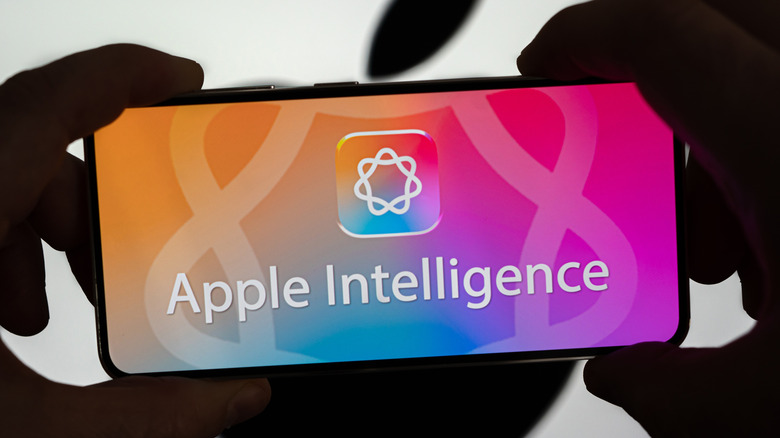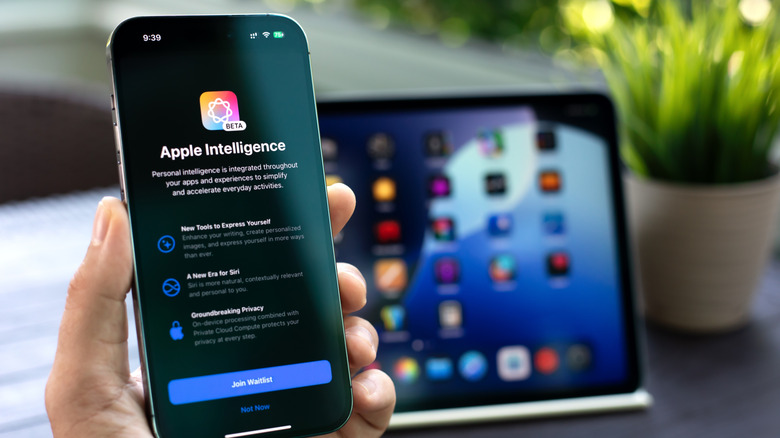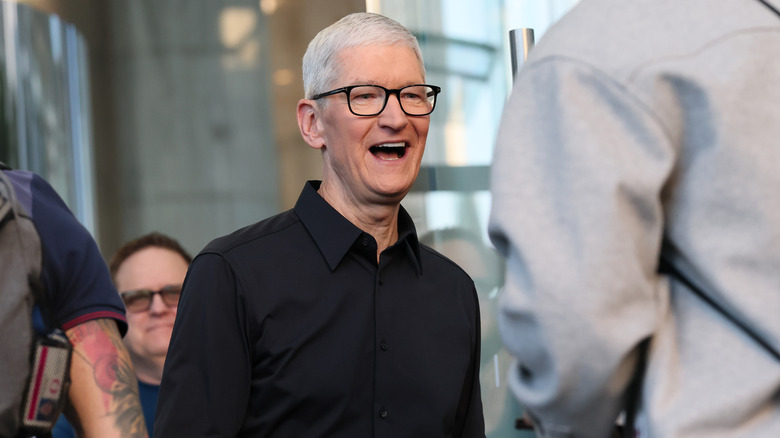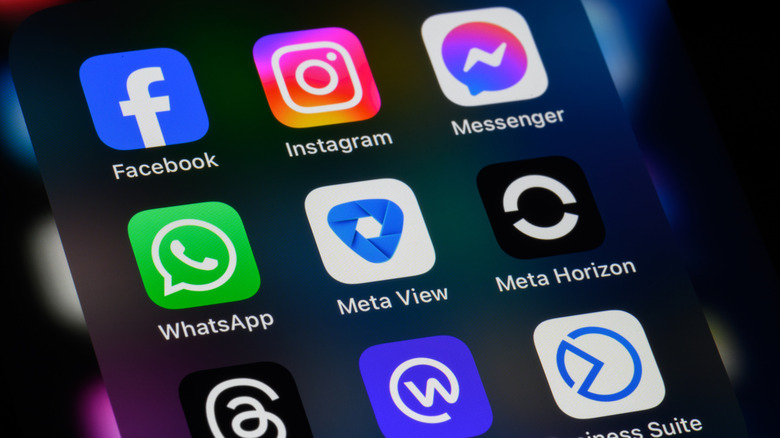Some Apple Engineers Are Worried The Next-Gen Version Of Siri May Disappoint
The performance of Siri in the AI space isn't exactly a bright spot for Apple these days. Especially for a company that prides itself on software that "just works," Siri far too often just doesn't. The good news, though, is that Apple is well aware of Siri's shortcomings, especially when compared to rival AI software like ChatGPT and Google Gemini.
As a result, Apple has been working hard to improve Siri in order to make it more useful and responsive. The Siri redesign, which launched last October — complete with an illuminating glow along the edges — was a promising start. But there's no denying that Siri still needs a lot of work. With that said, Apple has been teasing a completely revamped version of Siri scheduled to launch early next year.
Apple CEO Tim Cook, during an earnings conference call a few months ago, said that Apple is "making good progress on a more personalized Siri." Moreover, reports indicate that the software will be released to the public in March 2026 with the release of iOS 26.4. That's the good news. The bad news is that some Apple engineers are reportedly concerned that the Siri update in iOS 26.4 won't live up to the hype, which is to say it won't improve functionality to the extent needed.
Some Apple engineers are cautiously optimistic about next-gen Siri
According to Mark Gurman over at Bloomberg, we might see an exodus of key Apple AI engineers if the new iteration of Siri fails to live up to expectations. "I strongly believe there will be more senior members of the company's AI ranks hitting the exits soon, especially if the new Siri coming in the spring falls flat," Gurman writes. "Already, there are concerns from people testing iOS 26.4 — the OS version slated to include the new Siri — about the voice assistant's performance."
That's not terribly encouraging, especially given that Gurman's reporting on upcoming Apple software, more often than not, tends to be accurate. While it's extremely unlikely that the next iteration of Siri will instantly become the AI software to beat, Apple has to be confident it can make enough improvements to demonstrate that it's still a force to be reckoned with in the AI space.
Is Tim Cook's optimism about AI warranted?
It's worth noting that Tim Cook believes that Apple still has time to catch up to the competition. During an earnings conference call recently, Cook brought up the fact that Apple historically enters markets relatively late, only to dominate them later on.
"We've rarely been first," Cook told company employees this past August. "There was a PC before the Mac; there was a smartphone before the iPhone; there were many tablets before the iPad; there was an MP3 player before iPod. But Apple invented the modern versions of those product categories. This is how I feel about AI."
Cook is certainly on point with respect to the iPod and iPhone, but the AI market is a bit different. For starters, Apple was able to leverage its expertise in hardware in order to surpass rival MP3 player and smartphone makers in the early 2000s. There's no such advantage in the AI space because dedicated AI hardware isn't the playing field, though famed Apple designer Jony Ive is reportedly working on hardware-based AI products with OpenAI. Second, and more important, the competition Apple faces in the AI space is more sophisticated, aggressive, and nimble than the slow-moving competitors Apple had to contend with back in the iPod and early iPhone era.
Apple's AI team is experiencing brain drain
Apple's efforts to make a significant push in the AI space are currently being hampered by aggressive poaching from Meta. Over the past few months, Apple has lost several of its top AI engineers and researchers to lucrative job offers from Meta. Notably, some of these engineers played incredibly significant roles in developing new Siri features. For instance, Meta recently hired Ke Yang, a talented engineer who, before leaving for Meta, was in charge of Apple's "Answers, Knowledge, and Information" team — a core group of employees working on transforming Siri into a more conversational chatbot.
Apple certainly has tremendous resources to throw at AI development, but to truly improve Siri in a meaningful way, the company needs to do a better job of retaining its top engineers. In the meantime, all eyes will be on Apple come March 2026 when it releases a revamped version of Siri.



